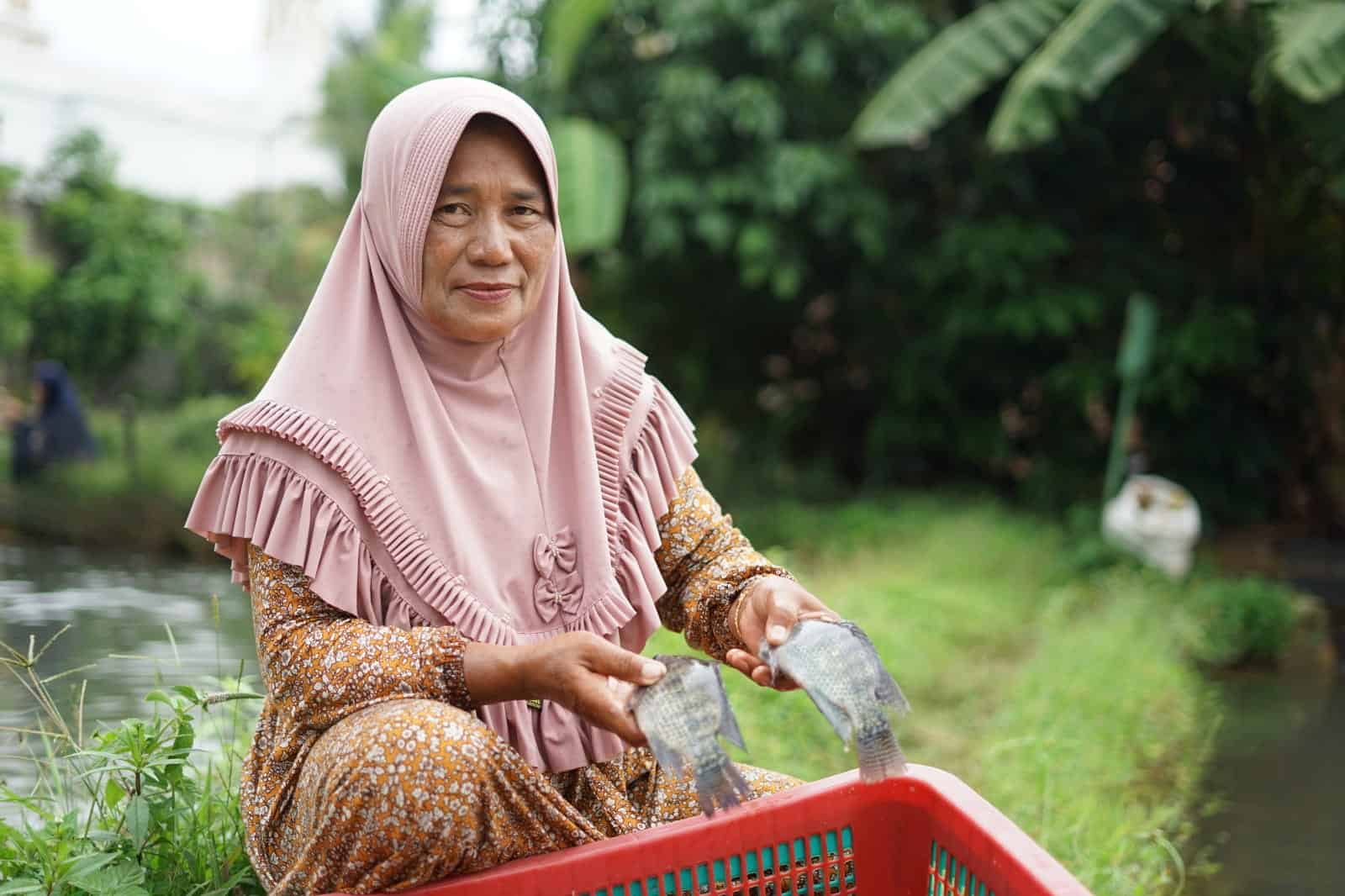WEST SUMATRA – This is about tilapia aquaculture. Wearing simple clothes, three middle-aged women involved in tilapia aquaculture walk through the underbrush. As they reach their respective ponds, they begin to spread out. The left hand tightly grips the handle of a bucket, while the right hand scoops up pellets to scatter into the water.
“This pond has about a thousand tilapia. They’ve started to grow big. In about a week, they can be harvested,” says one of the women, Reni Yanti (49), on Tuesday (10/10/2023).
These women are benefit recipients of the Kampuang Nila Program by Dompet Dhuafa Singgalang in the Pauh Subdistrict, Padang City, West Sumatra. The other two women are Rusni Yanti (39) and Yusri Yanti (57), with two others, Res and Ria, being absent.
Baca juga: Bangkitkan Perekonomian, Budidaya Ikan Nila Jadi Solusi Kala Suami Kena PHK
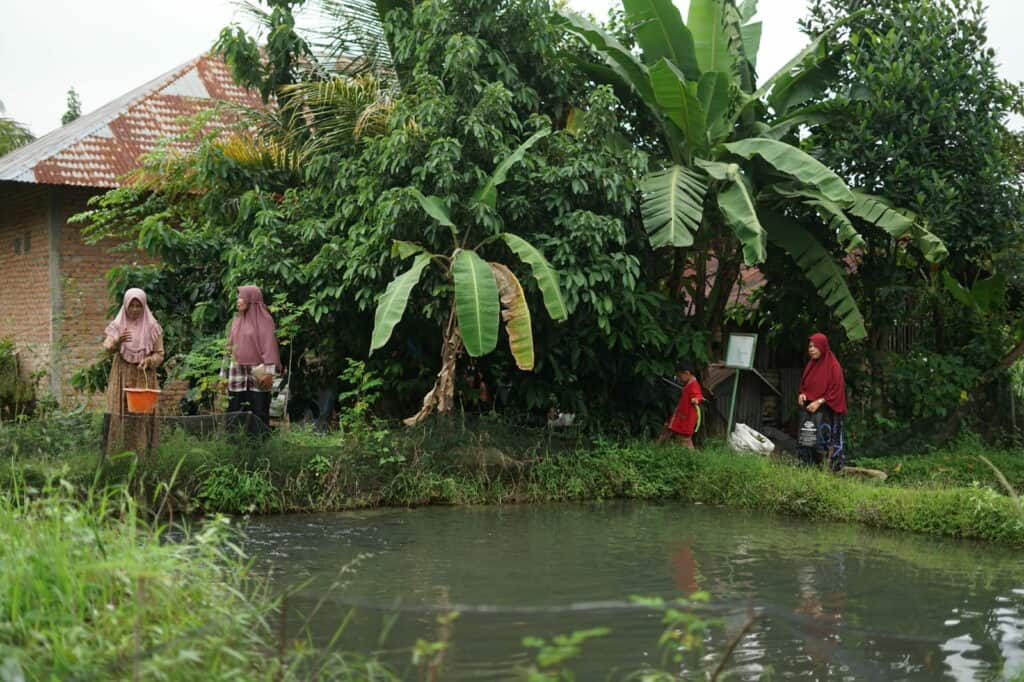
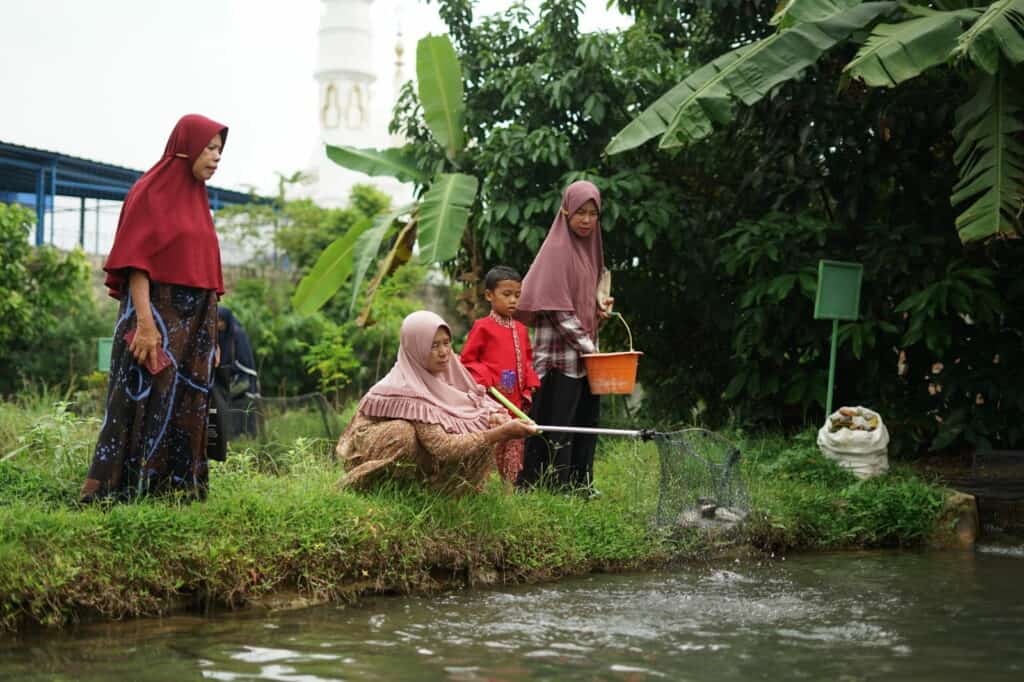
The sound of water becomes more pronounced as the pellets hit the surface, attracting thousands of tilapia from the corners of the pond.
In another corner of the pond, Ahmad Faisal Hasibuan, the Person in Charge of the Economic Program at Dompet Dhuafa Singgalang, explains that this economic empowerment program began on February 6, 2020. Dompet Dhuafa Singgalang initially provided assistance to 10 benefit recipients with seedlings, feed, and group mentoring. The program suits the region well, thanks to its excellent potential for tilapia aquaculture, bolstered by the strong water flow from the highlands.
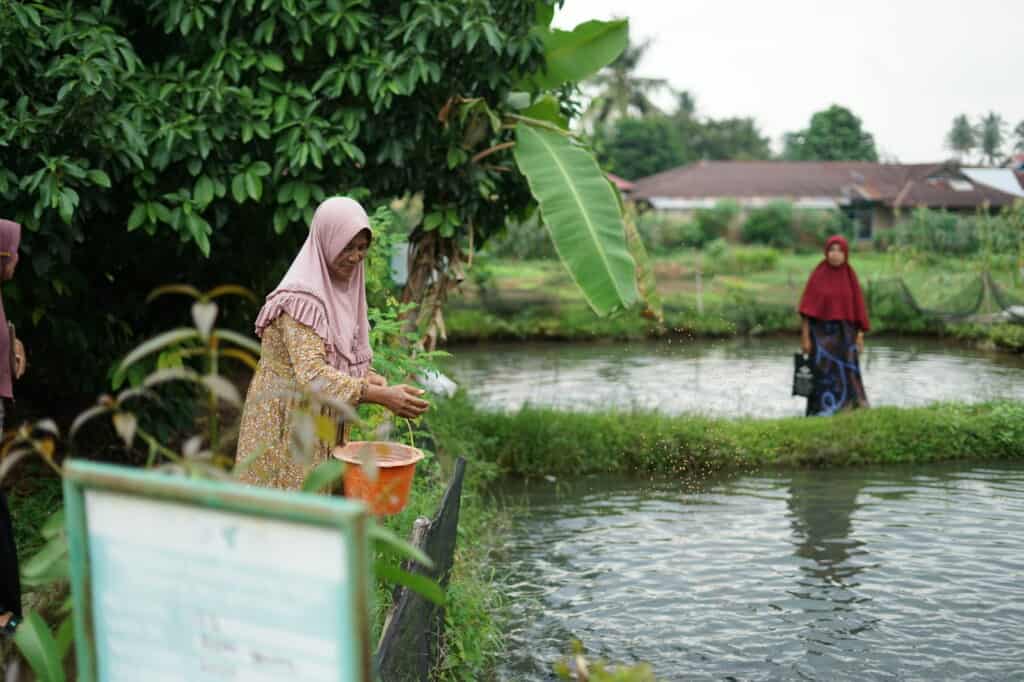
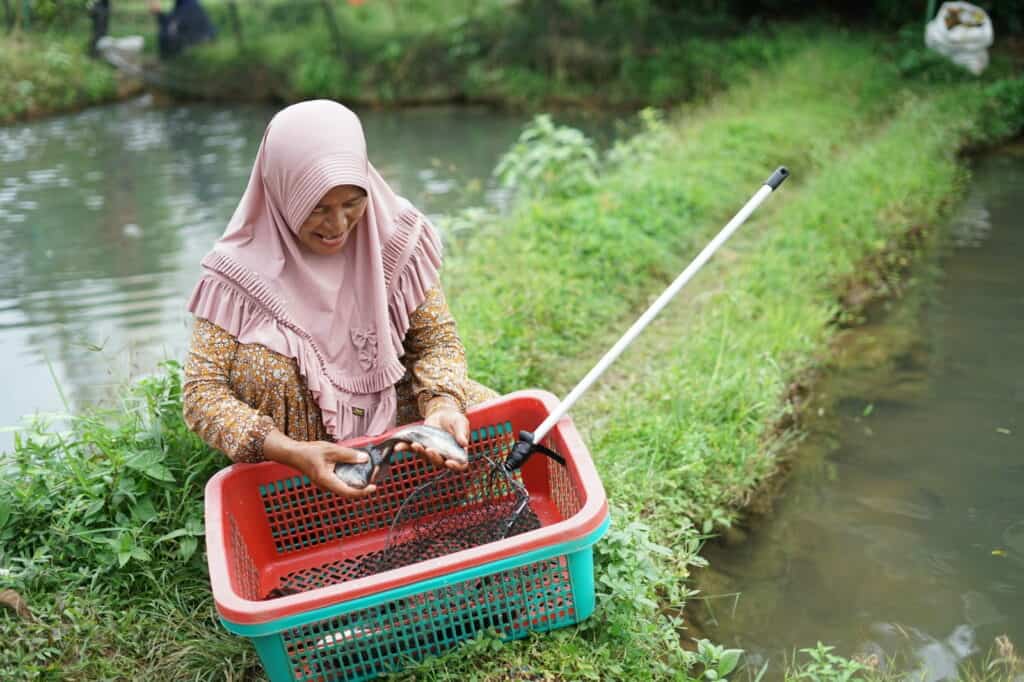
“Now there are five benefit recipients who continue the program, while the other five have started to develop their own ponds. Dompet Dhuafa’s intervention, particularly in marketing and providing fish seedlings, is still ongoing,” he clarifies.
Baca juga: Budidaya Gurame di Indramayu Tembus 1 Ton Penen Per Kolam
Rusni Yanti notes that the demand for tilapia in the Padang market is quite high, ensuring steady sales for the program’s benefit recipients. However, challenges remain, particularly with dealing with middlemen in the market. She recounts a significant harvest that was marred by a middleman who defaulted on payment, failing to pay anything at all.
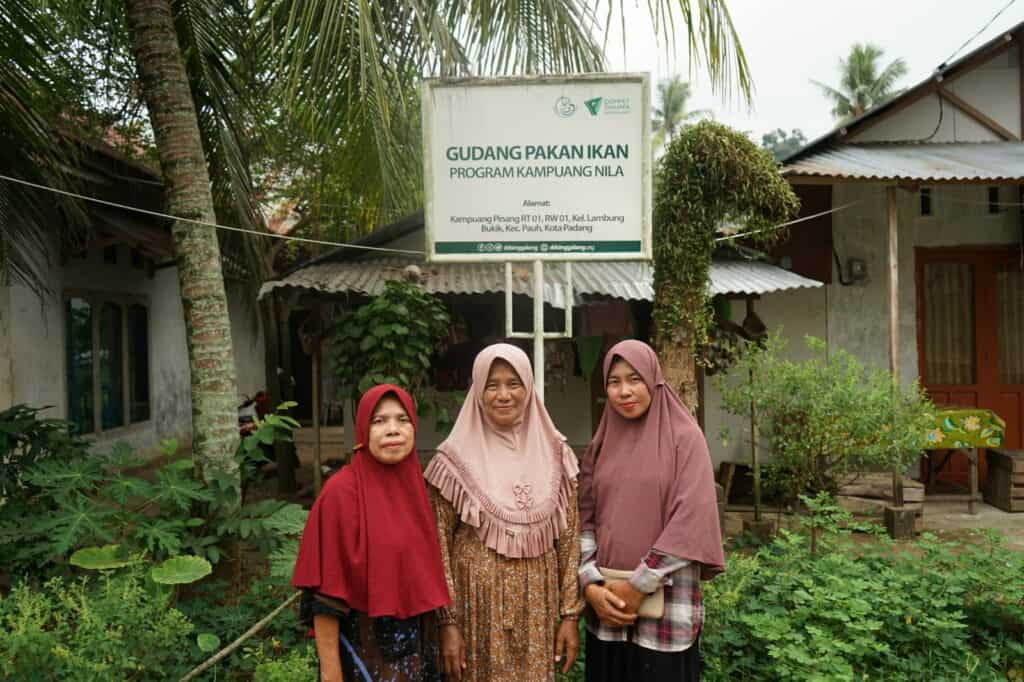
“There are many people interested in buying these fish, but we must be cautious in selecting buyers. They can be unreliable, sometimes not paying even after taking the fish,” she says, clearly frustrated.
This situation underscores the ongoing necessity of Dompet Dhuafa’s role. The organization continues to assist in managing sales and ensuring that the beneficiaries profit.
Baca juga: Berdaya Budidaya Madu Pak Sugio Berkat Dompet Dhuafa
These homemakers, like Reni with her five children, four of whom are still in school, find managing tilapia aquaculture to be a manageable addition to their responsibilities. Amid her busy schedule of helping her husband in the garden and doing housework, Reni finds time for the essential tasks of feeding and cleaning in the pond. (Dompet Dhuafa/Muthohar)



